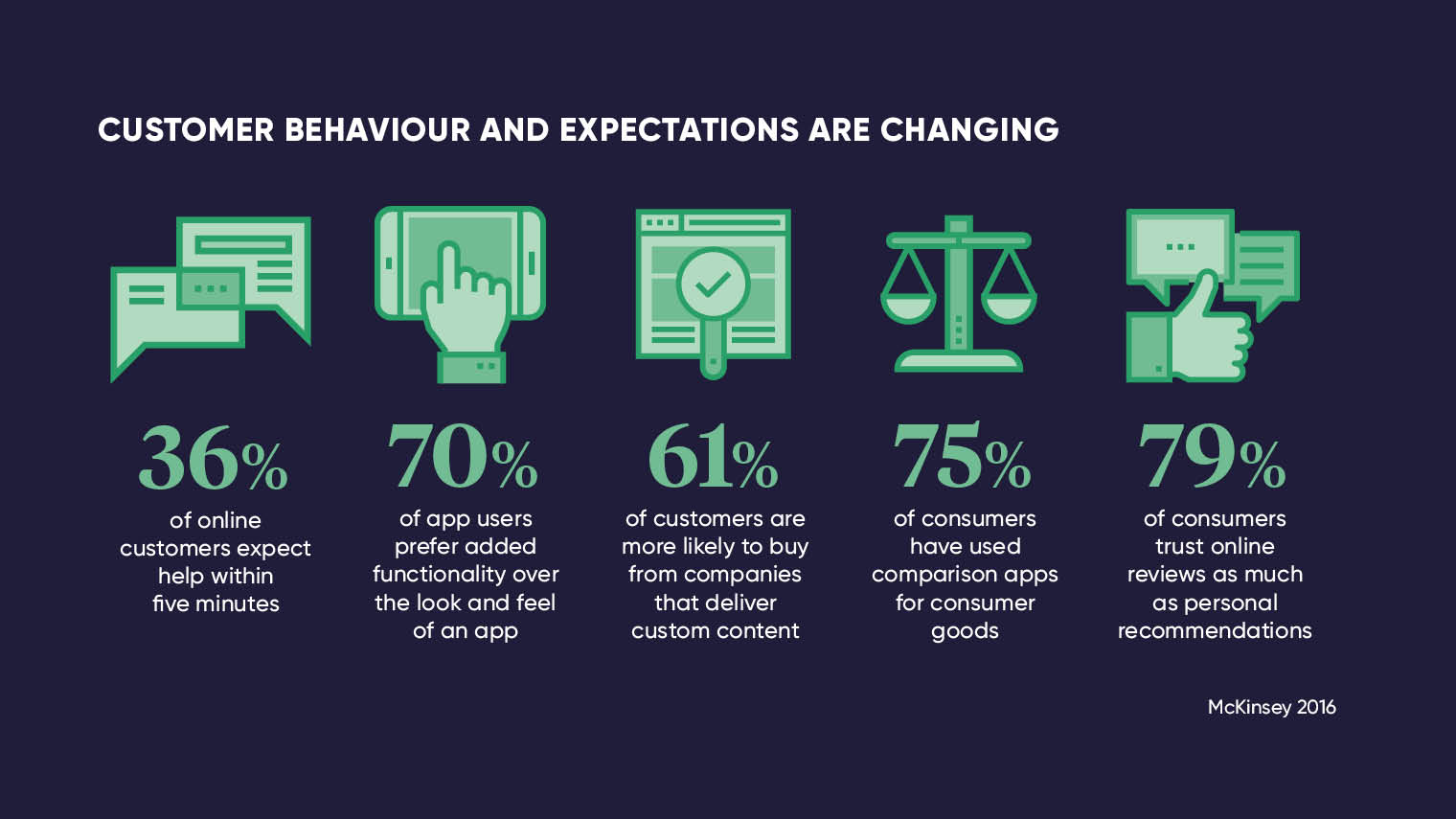“Take back control” was the mantra that won the referendum for those wanting to take Britain out of the EU last June.
As a slogan it brims with appeal. Its potency is its promise. Signs of delivery on that particular promise are still unclear at best.
Businesses that make a similar promise to demanding, digitally ambitious customers wanting more autonomy will lead the next era of commerce. Unlike politicians though, companies must deliver or die.
Customer satisfaction often boils down to key elements such as speed, ease and personalised service.
Control is the next customer experience “standard”. Digital marketplace businesses offering customers more control – think Amazon, eBay, Uber, Airbnb, Rakuten and Alibaba – continue to reshape economies. Marketplaces are enablers rather than sellers. Their users have a greater degree of control over vendor, product, price, payment options and other levers that personalise the experience.
Such influence is addictive. Smart businesses are building propositions and models to fit.
Examples of smart businesses
Naked Wines facilitates a community of 320,000 so-called angels – 190,000 of them in the UK – who pay £20 a month into a piggy bank to fund new wines. In return they buy wines at wholesale and discounted prices. Angels are not silent partners though; they’re an active community. They help winemakers develop the product they want to see.
Charles and Ruth Simpson returned to the UK from France where they’ve made and sold wine for 15 years. They plan to make sparkling wine in Kent, but needed funding upfront.
Though the first vintage won’t arrive until 2018, Naked Wines’ angels stumped up the cash and voted on which of three different grape blends should make up the wine.
Control is the next customer experience ‘standard’
These angels are active online too. Naked Wines’ UK marketing director Laura Riches says the honesty of feedback and reviews on its website – there are four million wine ratings – has had two effects. “Buying wine is traditionally a ‘black box’ with people fearing they’d get it wrong,” she says. “We’re giving people more confidence to discuss and buy wine.”
Those reviews also produce incredible data enabling Naked Wines to develop an algorithm that points specific members towards wines according to their taste as opposed to just price.
Amazon and Netflix built global powerhouses around such algorithms offering tailored recommendations. The idea is being seized upon by small businesses as a way of outmanoeuvring larger legacy competitors.

SME adoption
Picfair enables professional and amateur photographers to sell images, control their pricing and, crucially, receive the lion’s share of royalties.
Founded by former travel journalist Benji Lanyado in 2013, it aims to reduce the market hegemony of image licensing companies such as Getty and Shutterstock to provide the first photographer-controlled image marketplace.
Mr Lanyado says Picfair, now more than four million images strong, is unearthing a new generation of skilled photographers. Quality would have been an issue if not for his “picked” algorithm that uses several data points to identify the best images of any subject by acting as a digital version of our taste.
Companies using digital tools to empower and inform consumers employ the valuable customer data to improve service. Jumia, an Amazon-style African retail marketplace launched in 2012, serves more than 15 million monthly customers, buying across ten vertical sectors in 23 African countries.
Group chief marketing officer Fatoumata Ba says decisions “start with the customer” before Jumia captures the data it needs to build “layers of relevance”. It works with US company Dynamic Yield which offers marketers the ability to personalise services.
Ms Ba says Jumia’s understanding of customer needs through constant testing enables it to deliver the best content and engagement for individual customers. “Three years ago we offered customer service by phone and e‑mail,” she says. “Now we deliver it through chat and WhatsApp. That’s the expectation.”
Valued at more than $1 billion, Jumia owns pick-up stations, delivery fleets and warehouses as you’d expect, but insight from its data allows it to keep innovating in the area of customer service. Recognising that first-time online buyers have trust issues and may not have access to a bank account, Jumia offers reassurance and control via a cash-on-delivery service. Customers don’t pay until they receive the goods and even then can refuse to pay if they’re dissatisfied.
Whatever your industry, wherever your market, businesses willing to invest in digital tools to match customers’ growing desire for more autonomy will thrive. The pendulum of influence is swinging back towards the customer.
Examples of smart businesses

